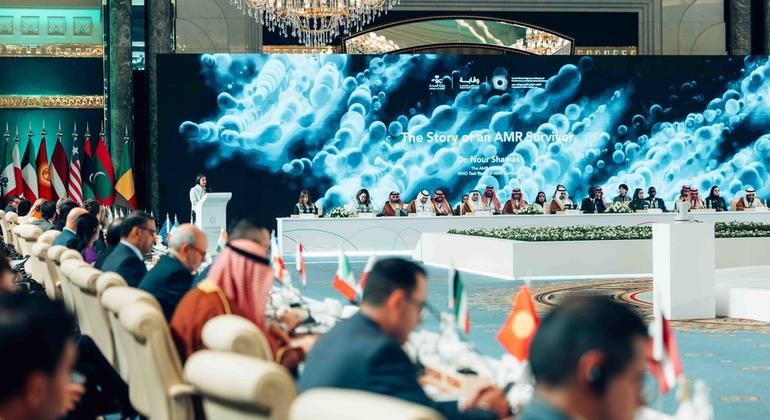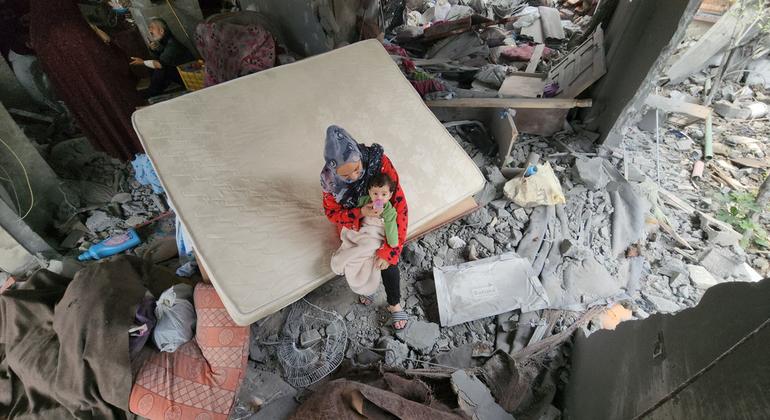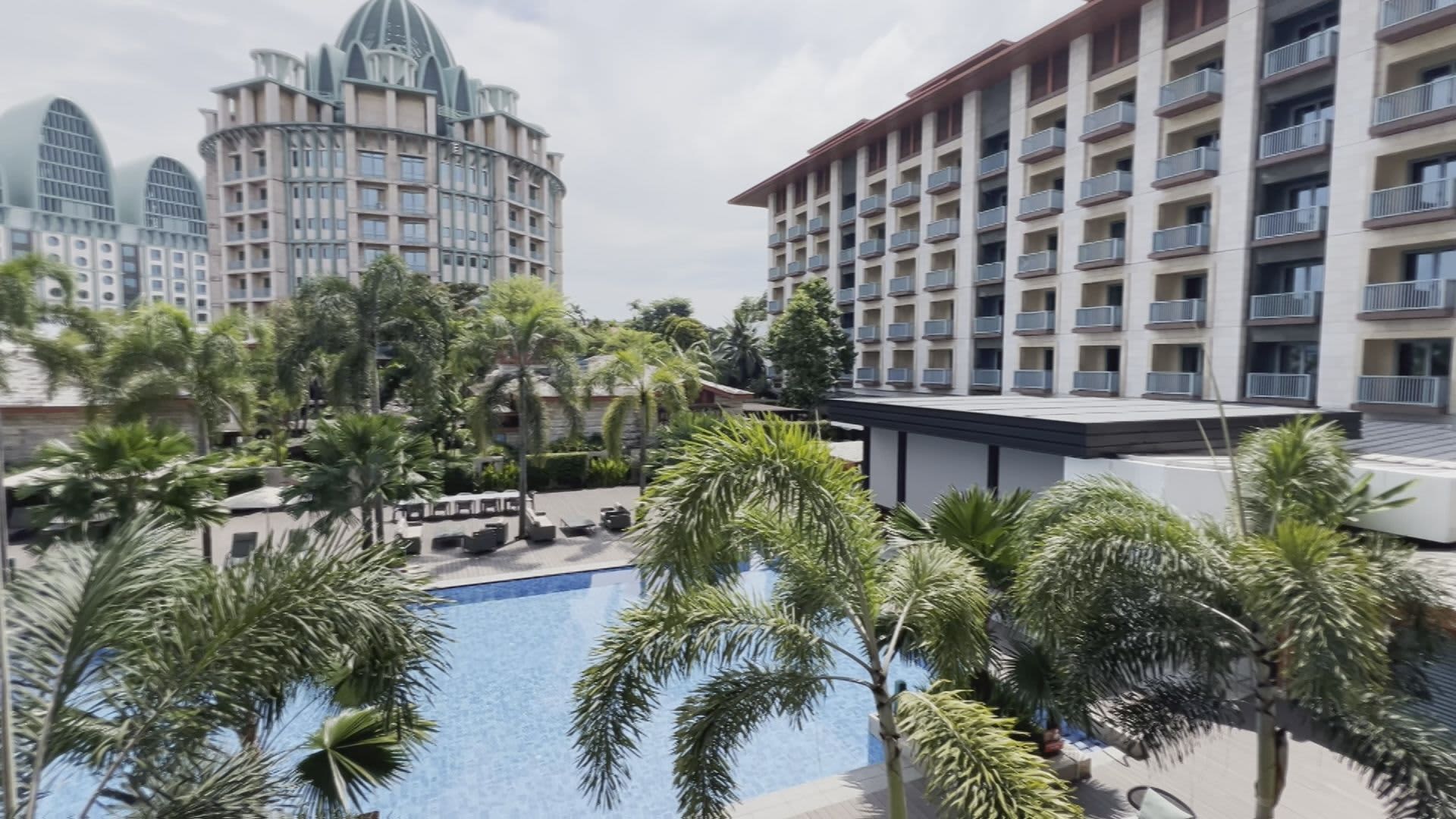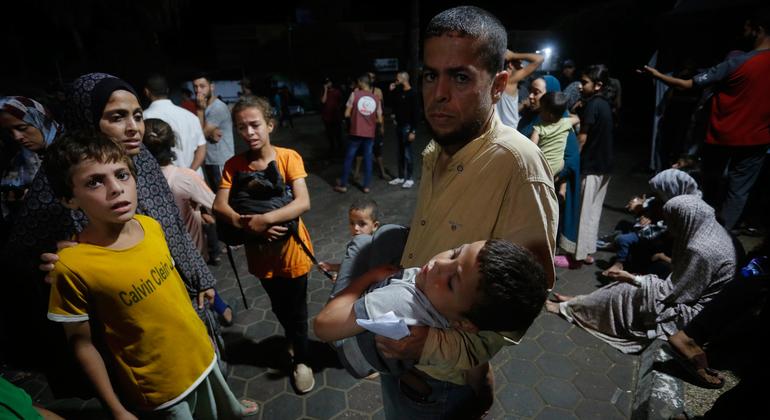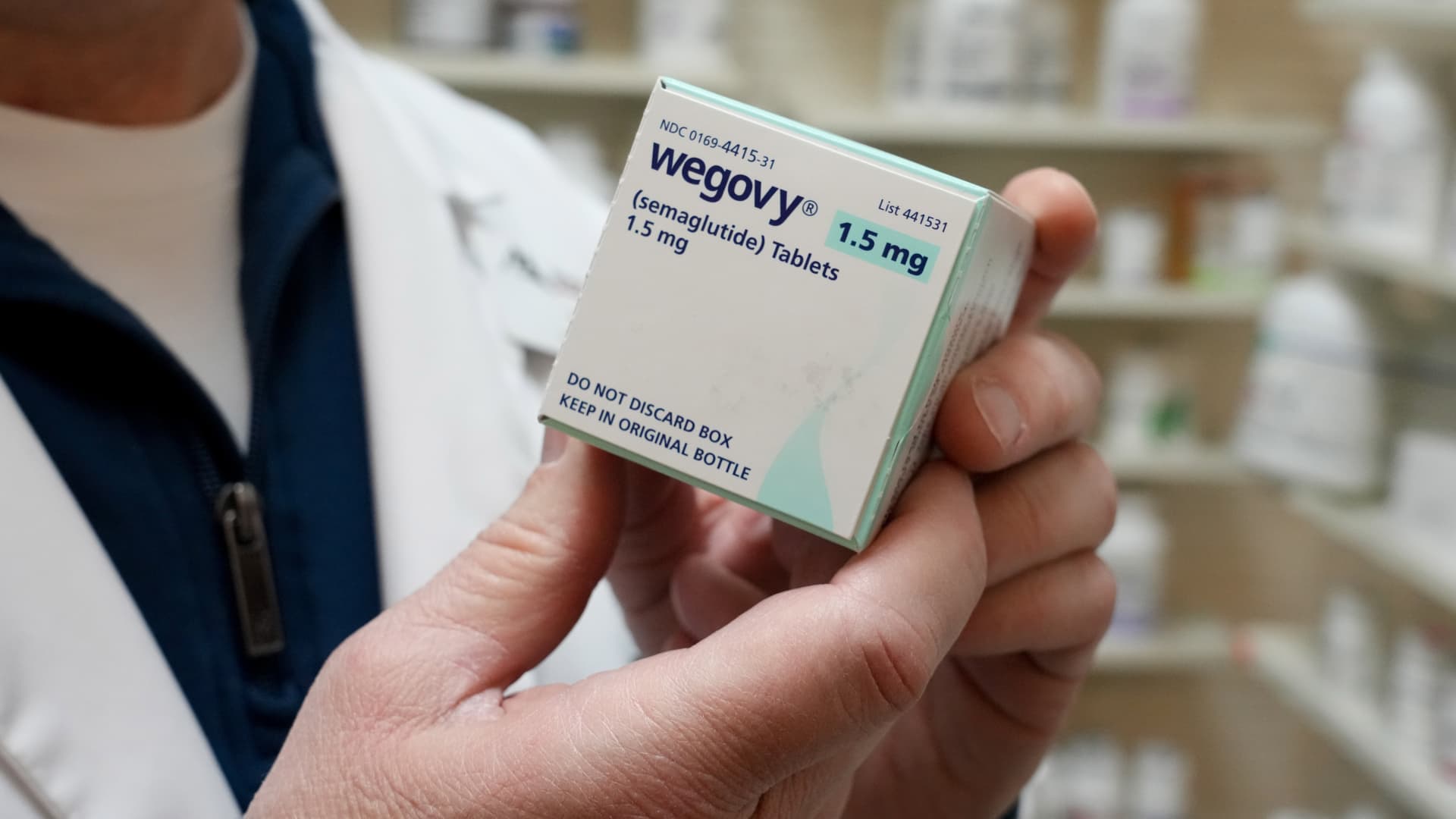Immediately after the adoption of the commitments in the Saudi coastal city, the host country's Minister of Health, Fahad Al-Jajel, said that the outcome of the conference provides “fundamental elements” for member states and international organizations to act meaningfully. against antimicrobial resistance, and which builds on the Political Declaration on AMR adopted at a high-level meeting of the United Nations General Assembly a few weeks ago in New York.
The commitments highlight the role of the Quadripartite Joint Secretariat on AMR, which is composed of the Food and Agriculture Organization of the United Nations (FAO), the United Nations Environment Program (UNEP), the Organization World Health Organization (WHO) and the World Organization for Animal Health. (WOW). They also call for the creation of a new 'biotech bridge' aimed at boosting research, development and innovation to find solutions to the global threat.
Minister Al-Jajel announced the establishment of a 'One Health' antimicrobial resistance learning center and a regional antimicrobial access and logistics center in Saudi Arabia to foster global collaboration and improve access to essential diagnostics and antimicrobials.
Fahad Abdulrahman Aljalajil, Minister of Health of Saudi Arabia, addresses the 4th High-Level Global Ministerial Conference on Antimicrobial Resistance (AMR), in Jeddah.
Antimicrobial resistance, or AMR, occurs when germs develop the ability to overcome medications designed to kill them. It can spread between people, animals and the environment and cause fatal infections.
Leave no one behind
Welcoming the adoption of the Jeddah Commitments, Jacqueline Alvarez, head of UNEP's Chemicals and Health Branch, said the outcome document is an example of successful multilateralism and “the benefits of working together across different sectors.” “.

And he added: “The commitments of Jeddah bring everyone who has a role to play together for action.”
Ms Alvarez said the document recognizes that countries have different capacities to address antimicrobial resistance and refers specifically to developing countries and how they can participate. “We can't leave anyone behind – which means we must ensure that everyone can grow together and not widen the gap between countries,” he explained to UN News.
The UNEP official highlighted the need to increase funding, “not only in the traditional way, but also by creating opportunities to develop more research and create green and sustainable solutions, that allow everyone to feel that they have opportunities while protecting themselves.”
The Jeddah conference and the previous meeting of the High-Level General Assembly focused on the social and economic dimensions of the AMR problem“which have not yet been thoroughly discussed,” he said.

Wide view of the Second Plenary Assembly of the AMR Multi-Stakeholder Partnership Platform, in Jeddah, Saudi Arabia.
The fight continues
Stakeholders were eager to harness global political momentum and support the fight against antimicrobial resistance. Just as the conference ended, they met in parallel at the Ritz-Carlton in Jeddah for the second plenary assembly of the ARM Multi-Stakeholder Partnership Platform to chart a way forward and turn new commitments into practical reality.
The platform is one of three governance structures established by the Quadripartite Joint Secretariat on AMR and hosted by FAO. Gathers 250 members “from the most basic level to the global level.”
To better understand its purpose, UN News spoke with the coordinator of the Multi-Stakeholder Partnership Platform, Nelea Motriuc, who explained that antimicrobial resistance was previously considered a technical issue to be discussed between doctors and veterinarians, but “everything changed” with the first High-Level Meeting of the General Assembly on the global threat in 2016.
“A high-level meeting at the General Assembly can really help build momentum and highlight a development issue,” he added.
Ms. Motriuc said that the Platform is a unique “multisectoral, multidisciplinary, multilevel and multidimensional” mechanism that “not only speaks [about]but doing” work across the entire spectrum of One Health, with the goal of “break silos, build bridges and create an ecosystem of all actorsdimensions and processes working together.”
This is done through 13, so-called action groups, which focus on global, regional, sectoral and even specific thematic actions and recommendations.
“What is special about these action groups is [the] Bottom-up approach in which a multi-stakeholder community contributes its collective knowledge and assesses its needs. They tell us the priorities that need to be addressed,” Ms. Motriuc said.
Junxia Song, FAO technical lead on antimicrobial resistance, said UN News that most of the recommendations made by one of the working groups had been incorporated into the Political Declaration of the General Assembly.
In today's discussions, Ms Song said participants had focused on how to implement the Jeddah commitments and the political declaration through “very interactive discussions” and tried to find concrete solutions and actions at all levels to that end.
The growing attention around antimicrobial resistance comes just ahead of a week dedicated to raising awareness of this pressing global health and socioeconomic crisis, as Global Antimicrobial Resistance Awareness Week begins on Monday, November 18 , under the topic Educate. Advocate. Act now.

